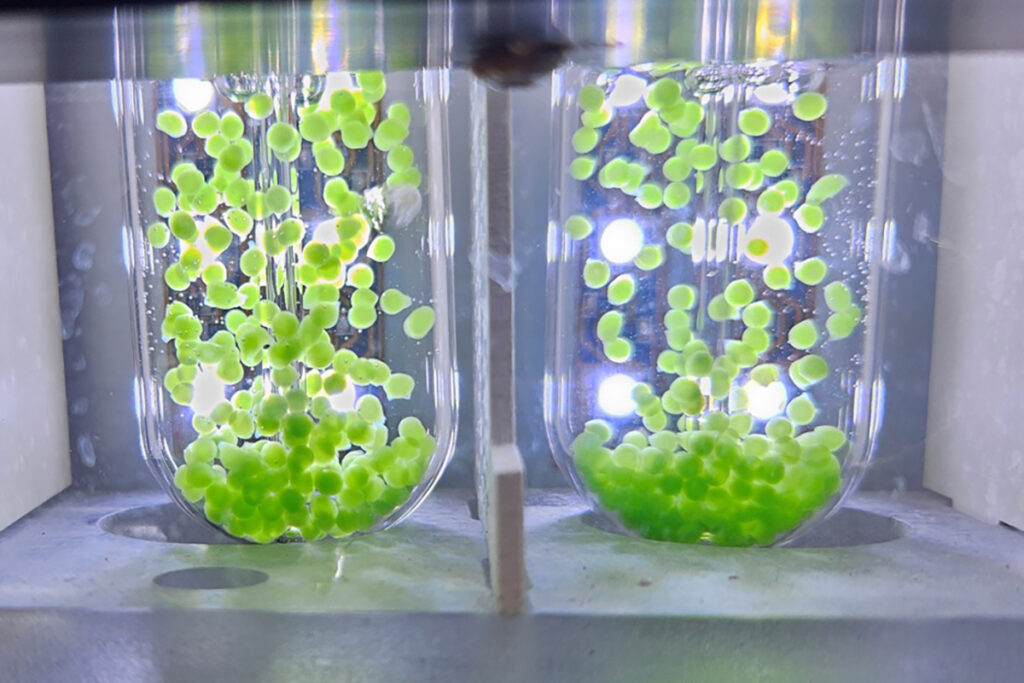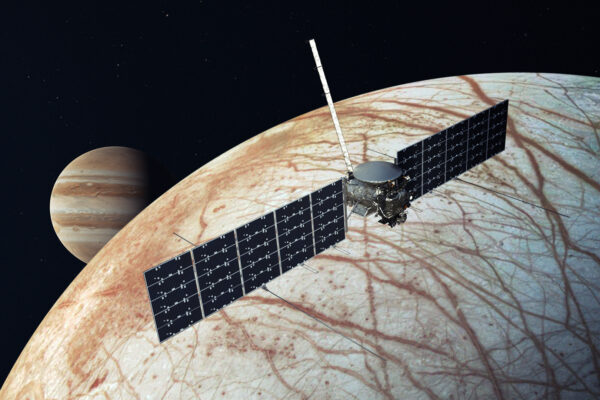
A nationwide consortium of researchers, led by the McKelvey School of Engineering at WashU, plans to develop an anaerobic digestion process that converts human waste into organic acids and carbon dioxide for use as carbon feedstock. The consortium, Anaerobic Digestion for Advanced Space Technology and Resource Acquisition, or AD ASTRA, is funded by a three-year $2.5 million grant from NASA.
The AD ASTRA team plans to engineer the cyanobacterium Synechococcus 2973, which is capable of photosynthesis and producing oxygen, to create food, nutraceuticals such as beta-carotene, and biopolymers from human waste. They will test this process in simulated micro- and low-gravity conditions, like that on the moon, and integrate the biological systems from anaerobic digestion to their newly developed photo-biorefineries, for example, engineering cyanobacteria and synthetic lichens.
Their goal is to produce protein-rich biomass as a food source and other chemicals and to recycle human waste, which ultimately helps to sustain astronauts in space.
Read more on the McKelvey Engineering website.


